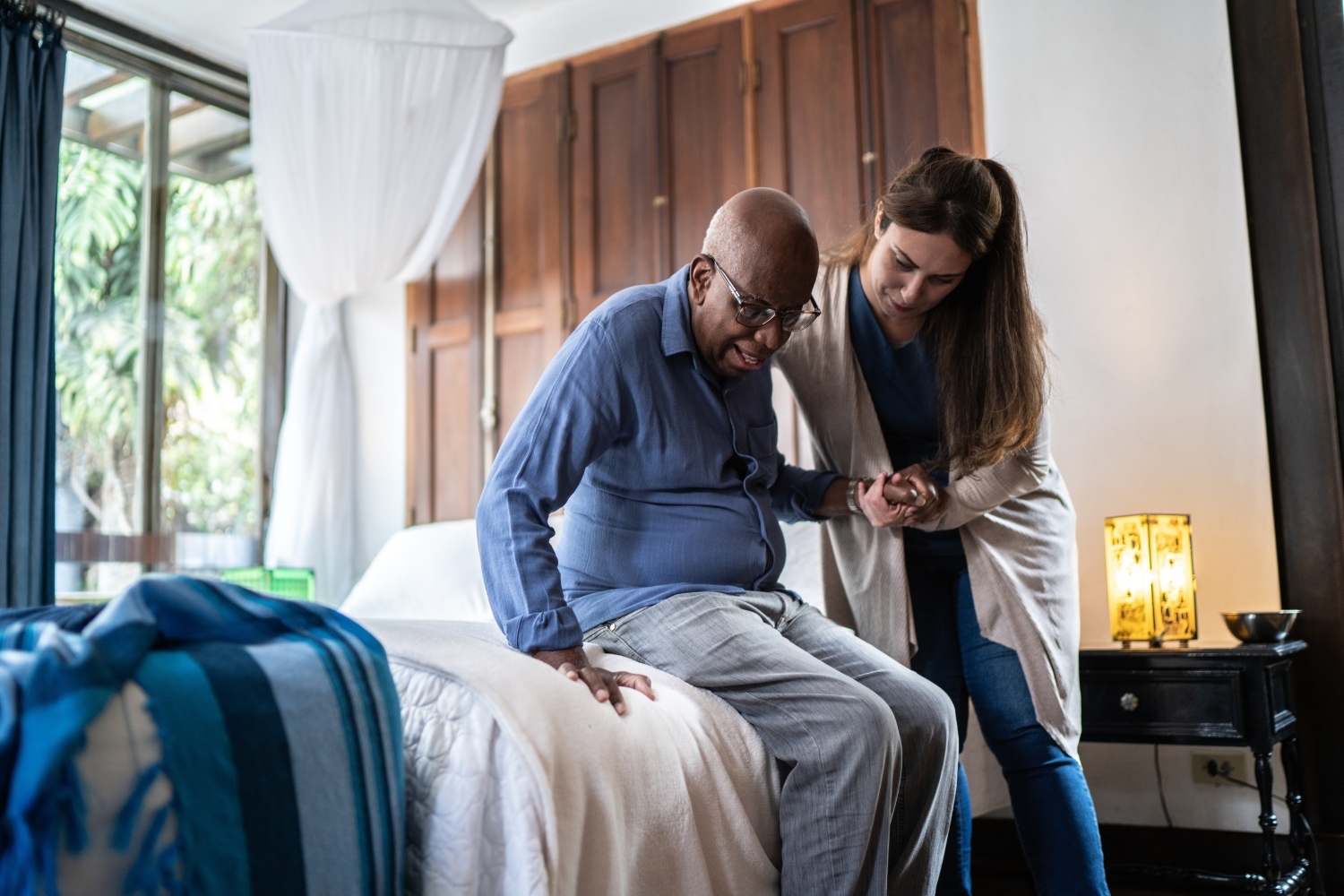How Transitional Care Helps Seniors Recover from Surgery at Home

When an older relative has surgery, they’re entering a vulnerable time. They’ll need extra support after coming home from the hospital, and it’s a big job to prepare meals, pick up prescriptions, help them move from room to room, and keep up with the housework. That’s especially true when you have your own kids, career, and extracurriculars to coordinate every day.
Perhaps you’re not in a position to take on all of your loved one’s post-op care needs. Maybe you simply want help ensuring their discharge instructions are followed as closely and safely as possible. Either way, hiring transitional care can be a crucial part of your loved one’s post-surgery plan—and ComForCare is here to support a healthy recovery!
How Do I Make a Post-Surgery Plan for My Loved One?
Making a post-surgery plan starts with talking to your loved one’s doctor about what recovery will look like. Make sure to ask about what kind of support they’ll need, including any dietary restrictions, mobility concerns (for example, whether or not they’ll be able to climb stairs), and special equipment, like shower seats or canes/walkers.
If you have a big family, you may have a lot of people around you who want to help take on some of the care in shifts. However, having consistent, clear, and high-quality care is crucial—everyone needs to be on the same page. And if you’re solely responsible, it can be difficult to provide the level of care needed while also taking care of your obligations at home.
That’s what makes transitional care such an appealing choice. With one person managing some or all of these aspects of care, you can rest assured that your loved one’s health and recovery are in good hands.
What is Transitional Care?
Transitional care can apply to any situation when someone moves from one care setting to another, whether that’s the hospital, a rehabilitation center, or a skilled nursing facility. Our caregivers help coordinate the care process between your loved one’s doctor and getting settled safely at home. That can mean a one-time transition to home or a longer stay, depending on your family’s unique circumstances.
Why is Transitional Care Important?
Coming home from the hospital may sound like a simple enough process, but unfortunately, that isn’t always the case. Research shows that older adults are especially vulnerable to breakdowns of communication and care during these transitions. Without post-surgery support in place, older adults can experience higher hospital readmission rates, trip and fall injuries, longer recoveries, and other adverse effects.
Post-surgery support is also important for family caregivers. While helping care for a loved one can be an incredibly rewarding experience, it can also be stressful. Some perfect examples of this include understanding the doctor’s orders, managing medications, and understanding the red flags for complications. Transitional care coordinates the logistics, allowing you to focus on providing the emotional support that your loved one will need following their procedure.
What Transitional Home Care Services Does ComForCare Provide?
ComForCare’s compassionate and highly trained caregivers can provide a number of home care services to help bolster your loved one’s support system after surgery. Our services include:
- Obtaining, reviewing, and implementing hospital discharge instructions
- Picking up prescriptions and providing medication reminders
- Scheduling and providing transportation to follow-up appointments
- Identifying trip hazards and making other home safety recommendations
- Helping with meal preparation, laundry, and light housekeeping
ComForCare caregivers are communication partners, too, helping to make sure that you, your family, and all healthcare providers involved are in sync. They’re fully prepared to be a resource, providing education and guidance about long-term care plans, key questions to ask, and warning signs of chronic conditions down the road.
If you’d like a caregiver to stay for a longer duration, they can also help with personal care services and companion care services.
Should I Get Post-Operative Support for My Loved One?
If your loved one has a procedure coming up, it is essential to take an honest and thorough assessment of the level of extra support they’ll need. Don’t forget to include yourself in this review! Transitional care services can benefit everyone: your loved one has the extra support they need to recover safely, and you have the extra bandwidth to be the best caregiver, family member, or support system you can be.
Not sure if you’ll need extra help? As you prepare for your loved one’s discharge, call ComForCare for a no-obligation consultation. We can provide a customized care plan to help the older adult in your life safely transition home, based on their needs and preferences. Our transitional care services are available 24/7, including holidays, so that everyone has access to a smooth road to recovery when they need it.
ComForCare: Transitional Care & Post-Operative Support
ComForCare provides in-home care services to a broad range of clients, from older adults to people with chronic illnesses. Whether you need temporary support or a more long-term solution, our skilled and compassionate caregivers are here to help your loved one live their best life. With over 200 locations throughout the U.S. and Canada, ComForCare is here to serve your needs.

